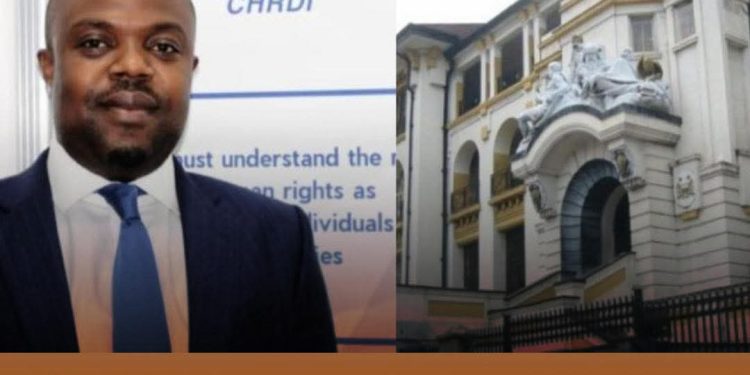By Hassan Osman Kargbo
The Campaign for Human Rights and Development International (CHRDI) has accused Sierra Leone’s judiciary of showing blatant disregard for national laws on transparency and accountability, raising serious concerns about the state of democracy and the rule of law.
In a statement issued recently, CHRDI expressed deep frustration over what it described as months of “silence and neglect” from the judiciary. The organization said it had written to the judiciary on August 21, 2025, requesting information on the 2018 Commissions of Inquiry cases, particularly those currently before the Appeals Court and the Supreme Court.
According to the group, its request was made under the Right to Access Information Act of 2013, which mandates all public institutions to respond to such requests within 15 working days. However, CHRDI noted that the deadline passed without even an acknowledgment from the judiciary.
“Instead of leading by example, the judiciary has chosen to ignore the very law that binds every public institution in Sierra Leone,” the organization stated.
After waiting for weeks with no response, CHRDI said it took the matter further by filing a formal complaint on September 23, 2025, with the Right to Access Information Commission (RAIC). Following its review, the RAIC ordered the judiciary on October 9, 2025, to respond to CHRDI’s request within seven days. Yet again, the organization said, there was no reply.
For CHRDI, this continued pattern of silence speaks volumes about the state of governance in Sierra Leone. “The judiciary’s refusal to provide information doesn’t just break the law, it breaks public trust,” the organization said. “When those who interpret the law fail to obey it, it sends a dangerous message to every citizen and institution in the country.”
The rights group warned that the judiciary’s failure to comply with the law undermines the principles of transparency, accountability, and fairness, which are vital to sustaining democracy and public confidence in the justice system. CHRDI added that the judiciary, being the final arbiter of justice, should set a clear example by upholding the laws that govern all public institutions.
“When the judiciary itself refuses to comply with a lawful directive from the Right to Access Information Commission, it raises questions about its commitment to transparency and good governance,” CHRDI emphasized.
The organization further warned that such behaviour risks eroding public trust in the justice system, weakening the rule of law, and threatening the country’s overall democratic values. It said Sierra Leone’s development depends on institutions that are accountable, open, and responsive to public scrutiny.
CHRDI therefore called on the judiciary to immediately comply with the Right to Access Information Act and demonstrate respect for state institutions by providing the requested information without further delay.
“Transparency is not a privilege,” CHRDI concluded. “It is a right. The judiciary must show leadership by example and honour its legal and moral obligations to the people of Sierra Leone.”
The statement by CHRDI has since sparked renewed debate among civil society groups and legal analysts about the importance of transparency in public institutions and the need for stronger enforcement of accountability laws across the country.













